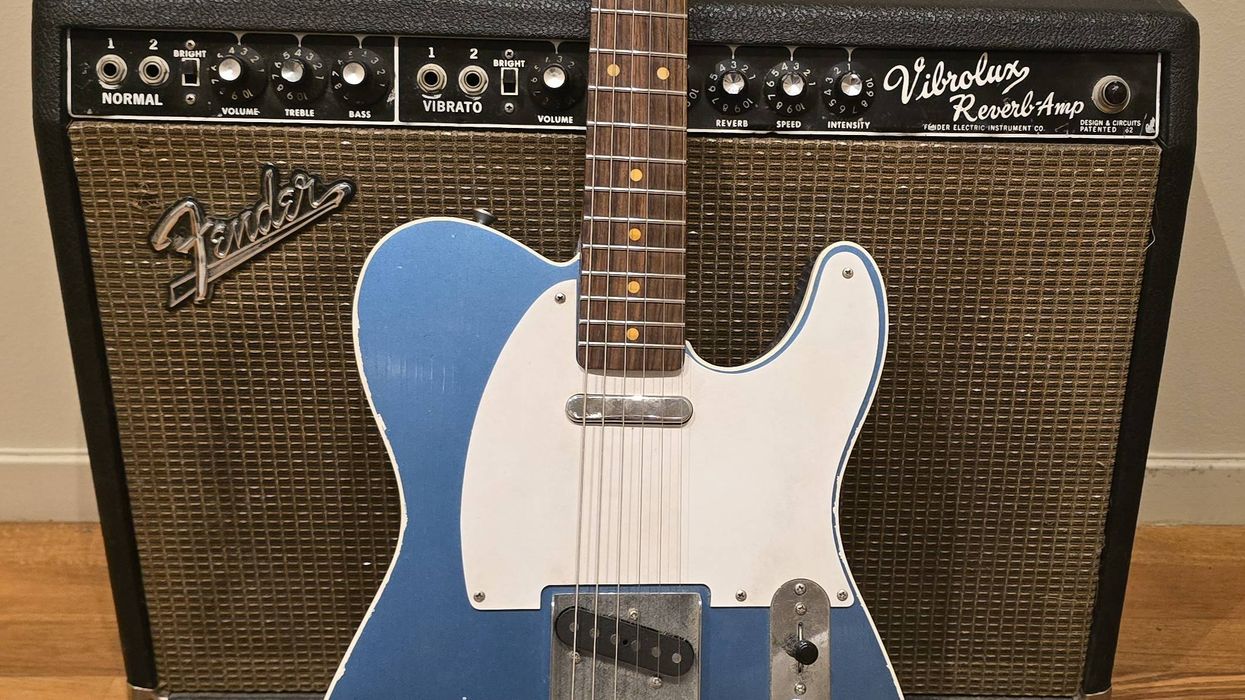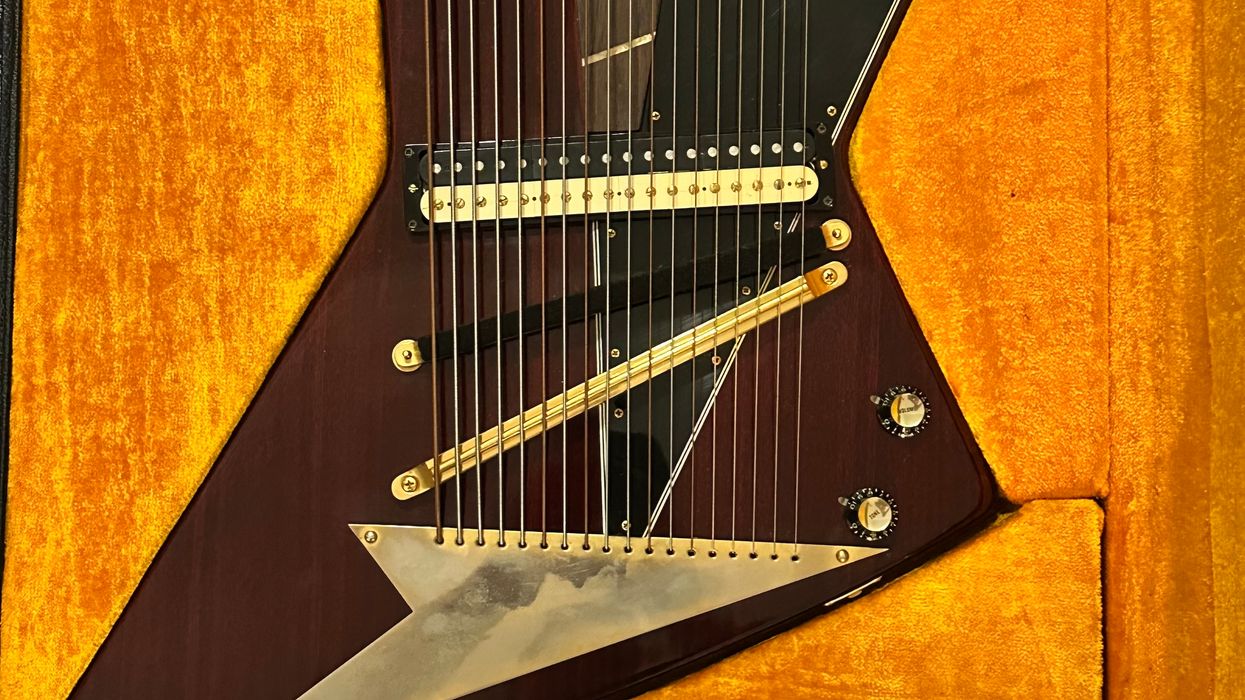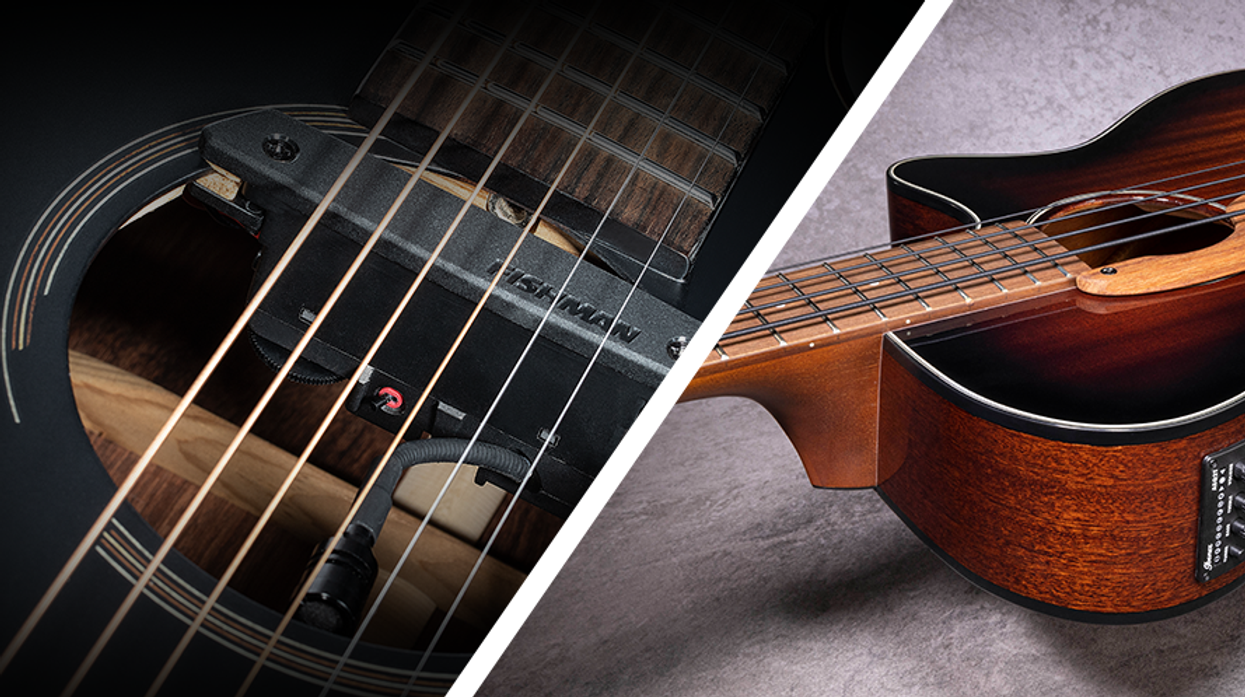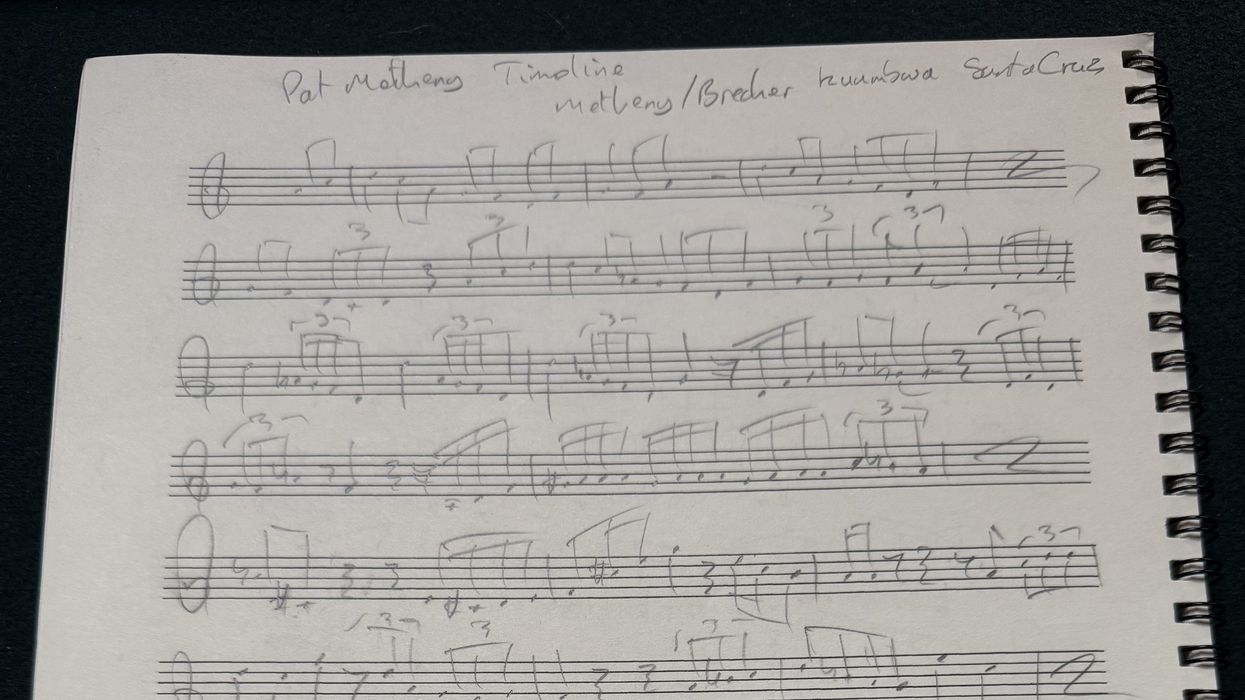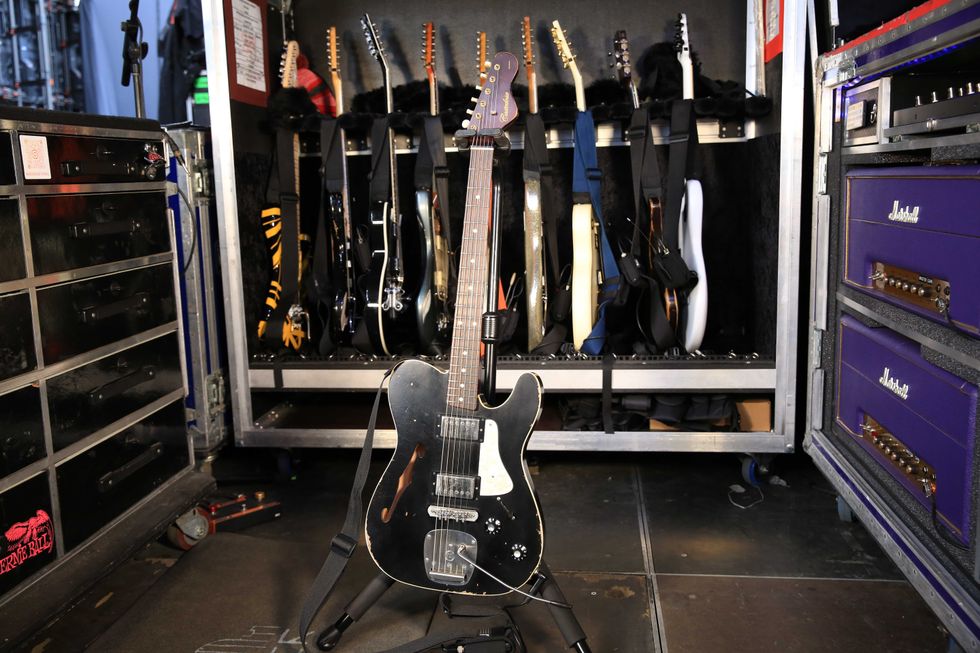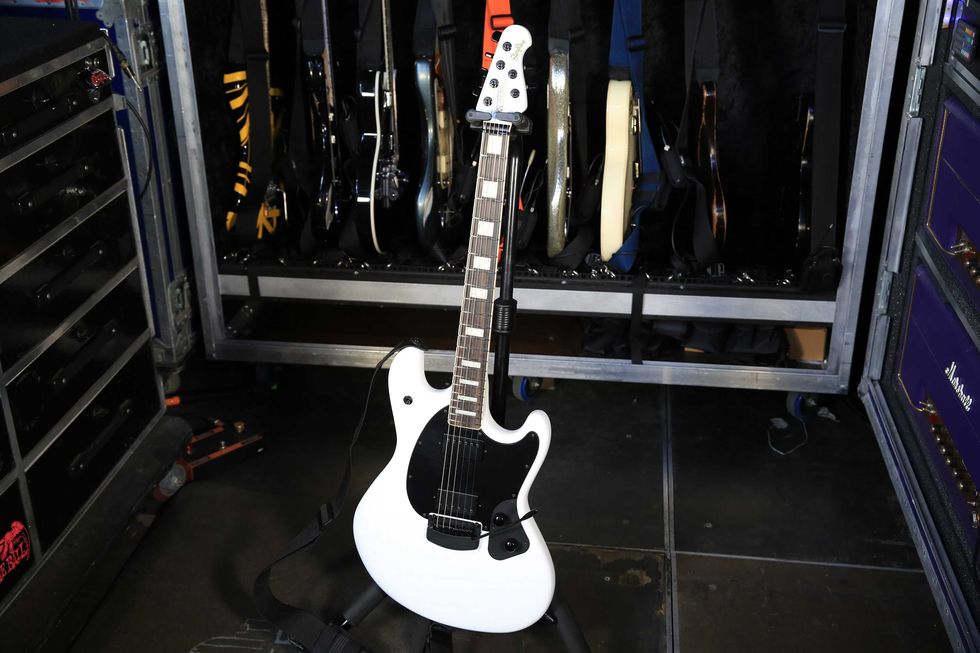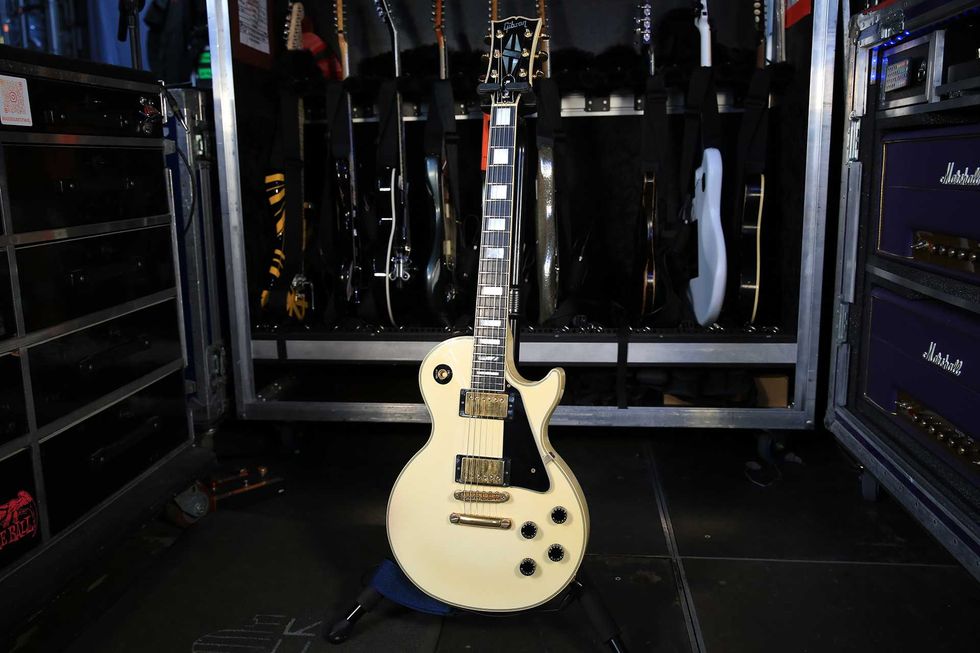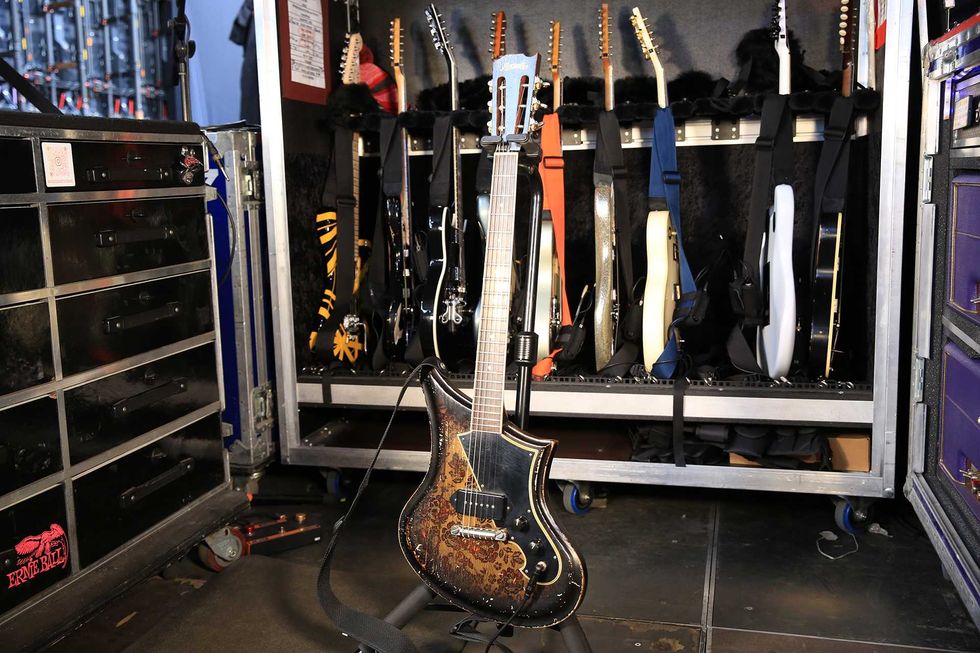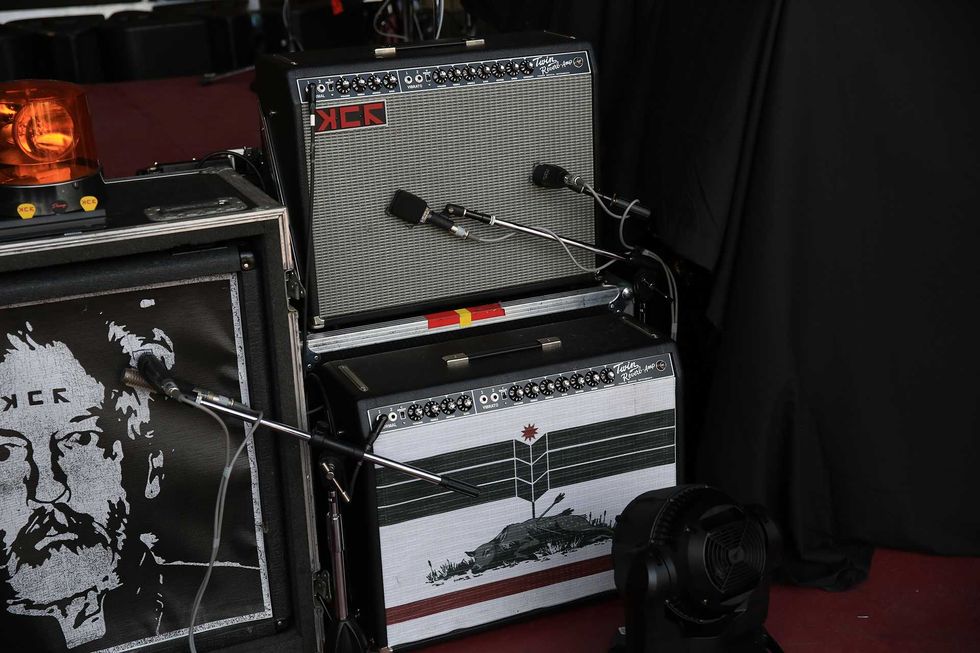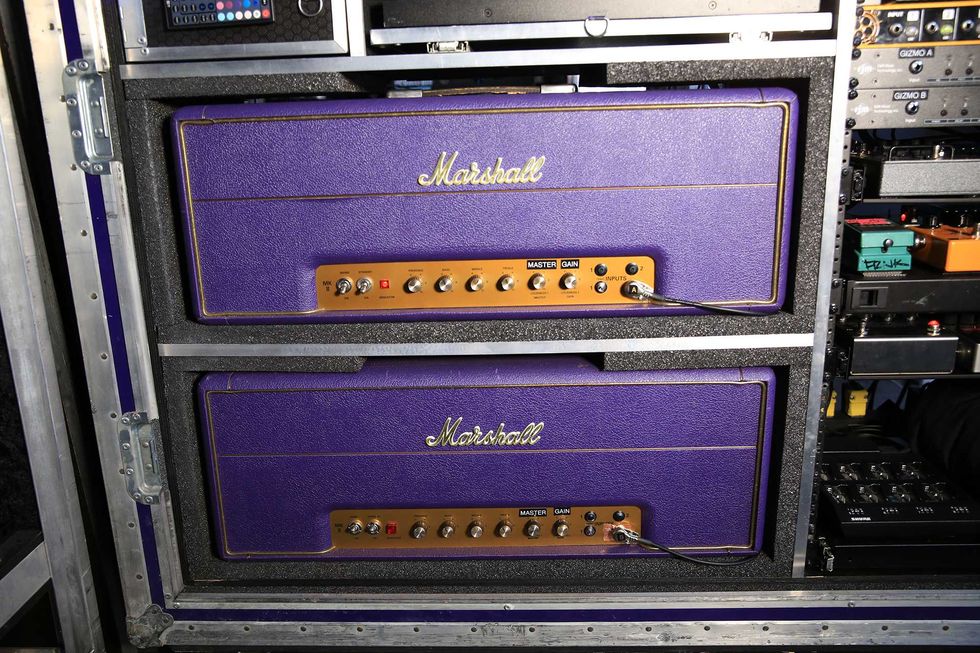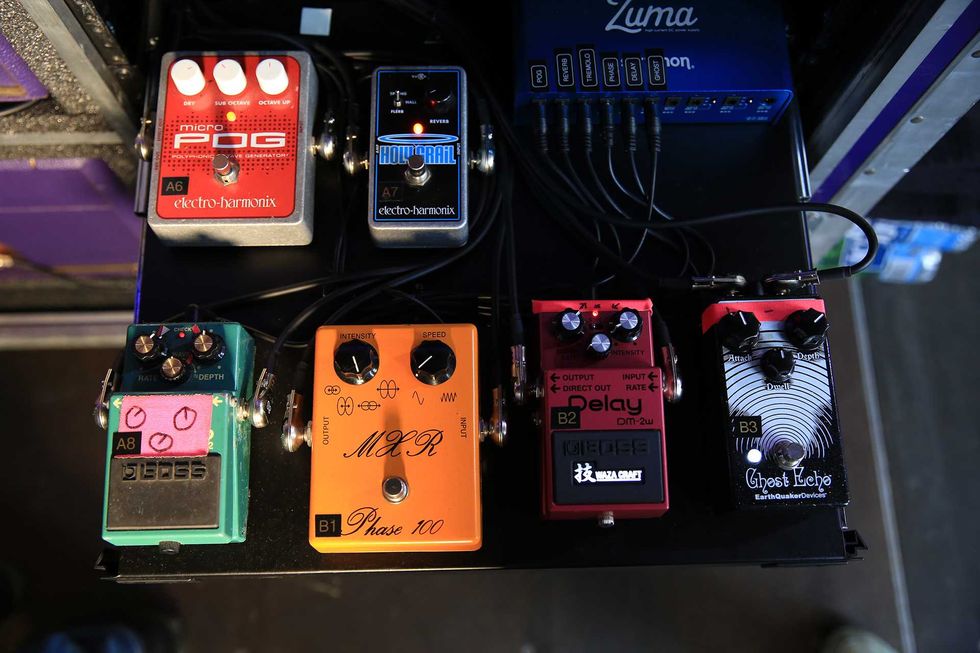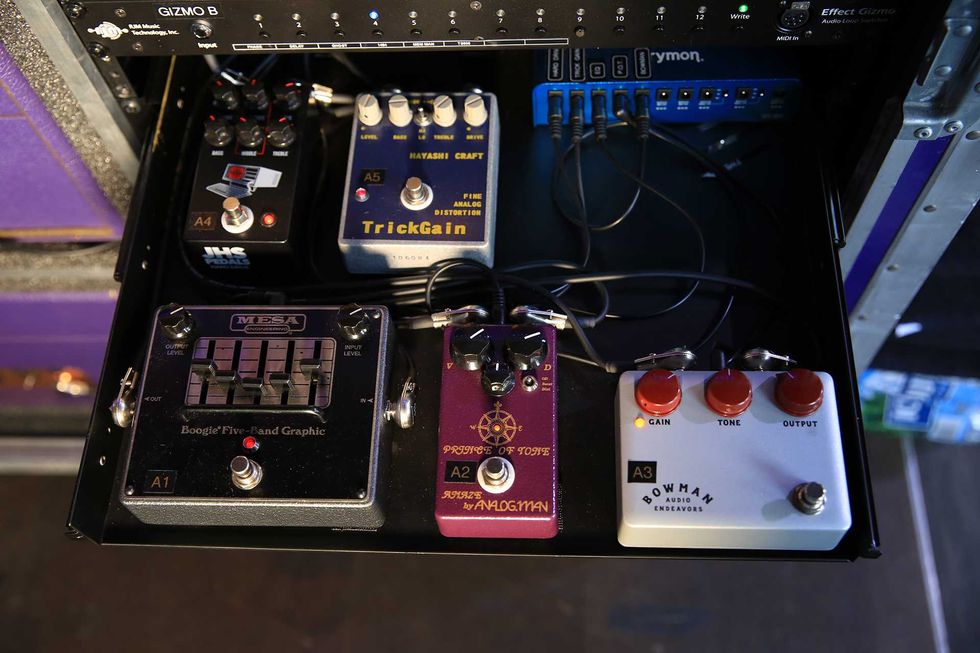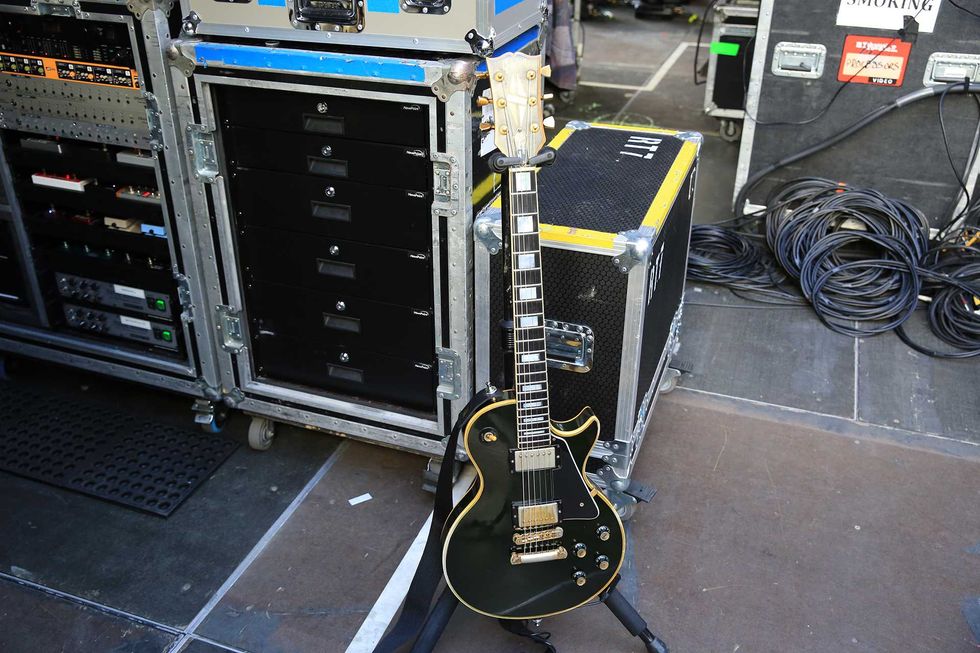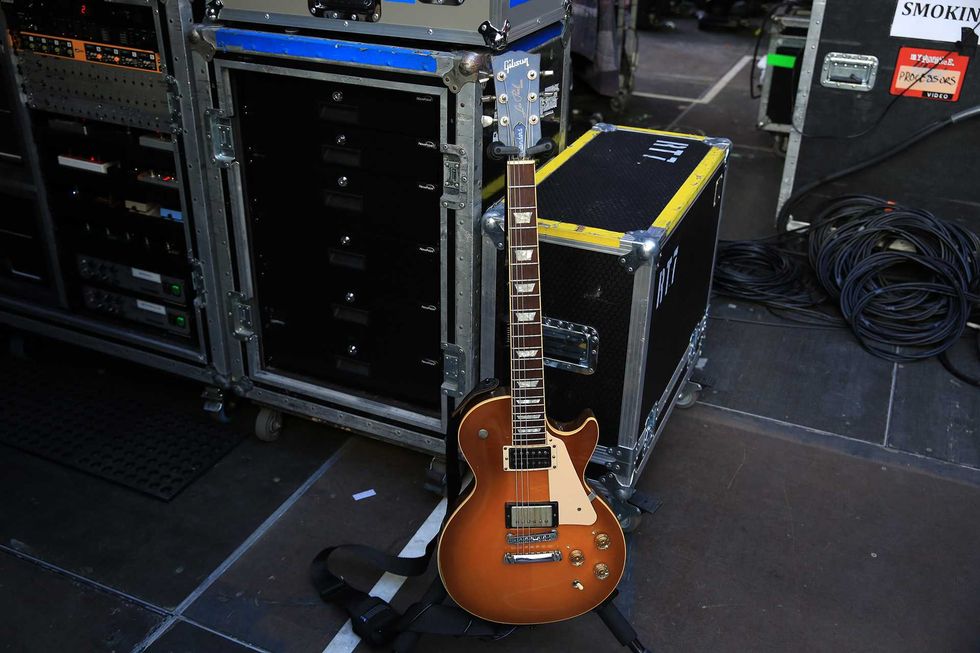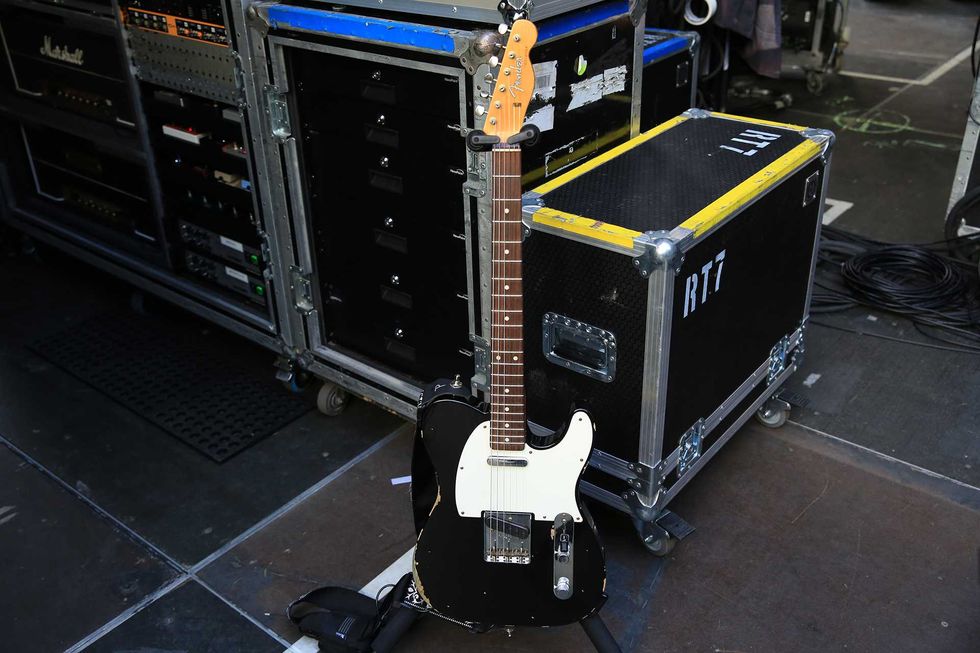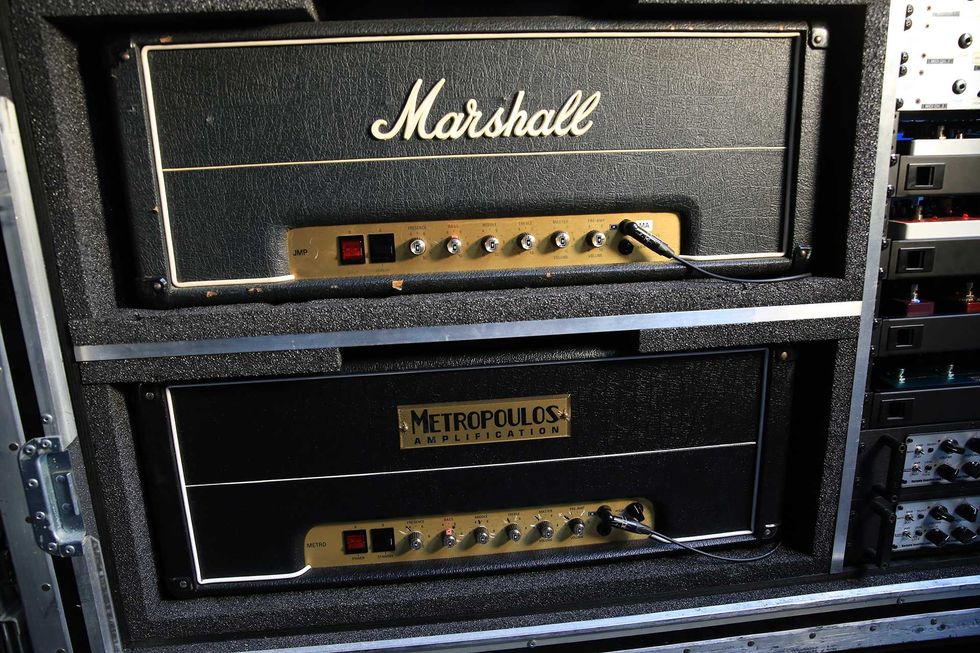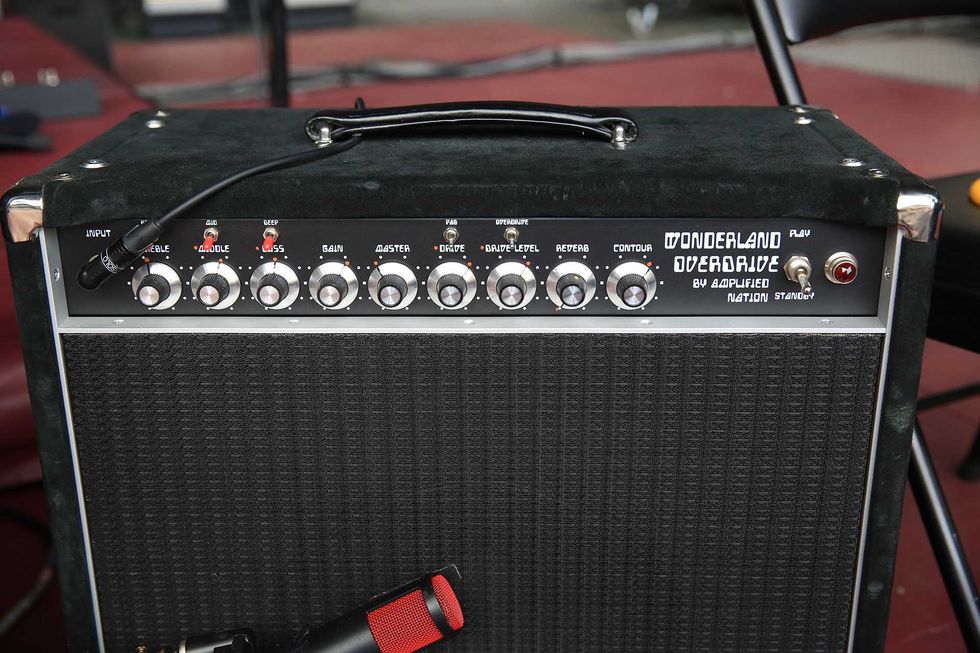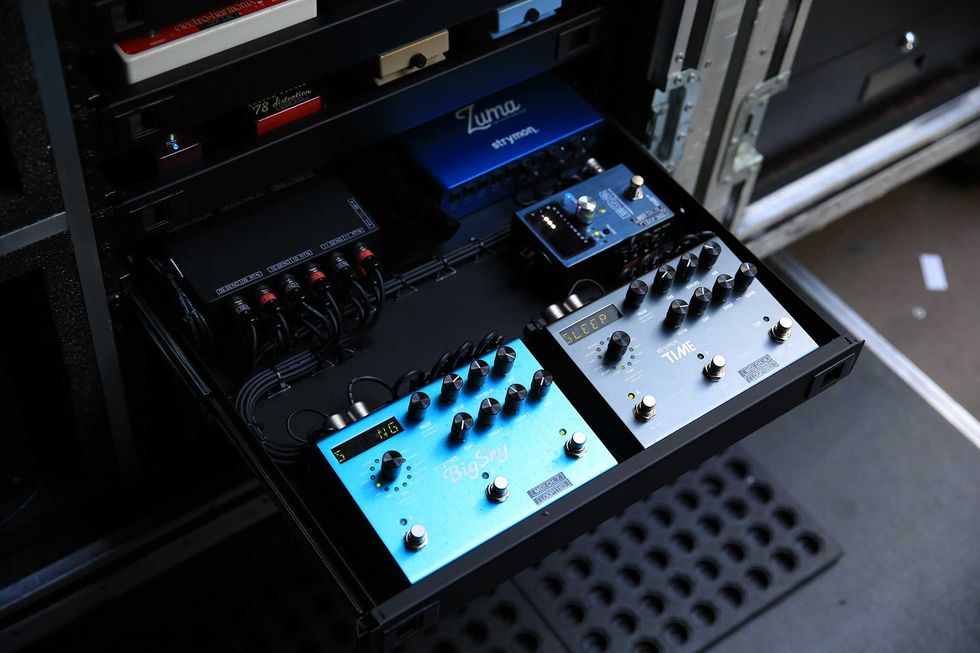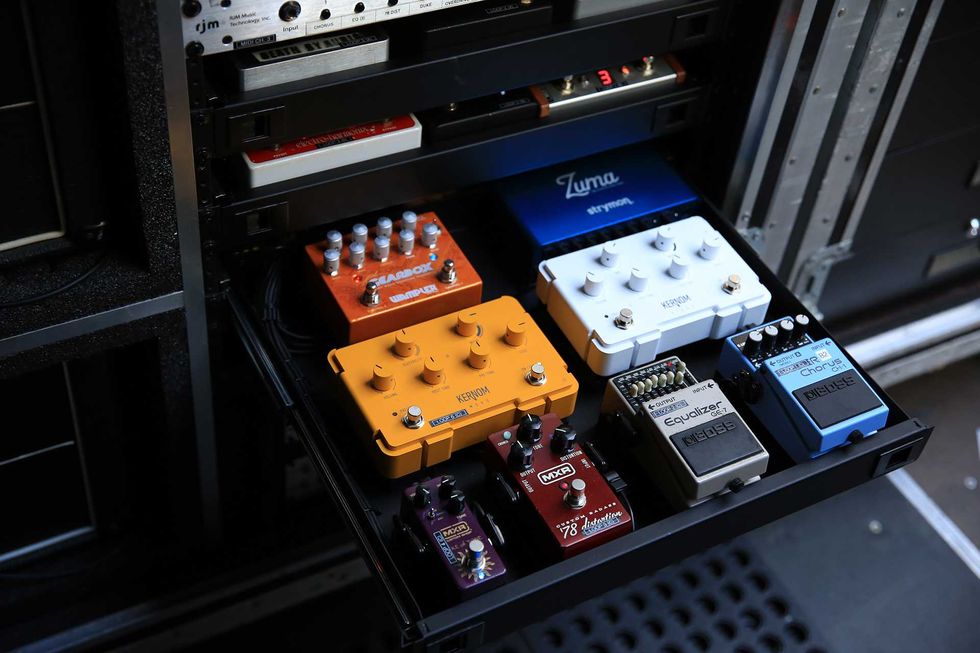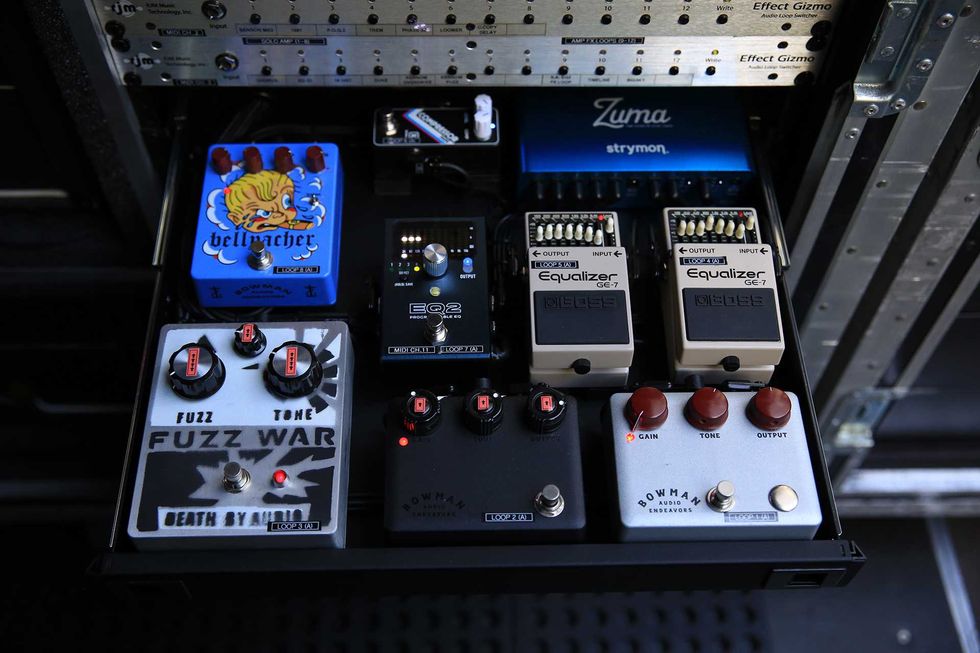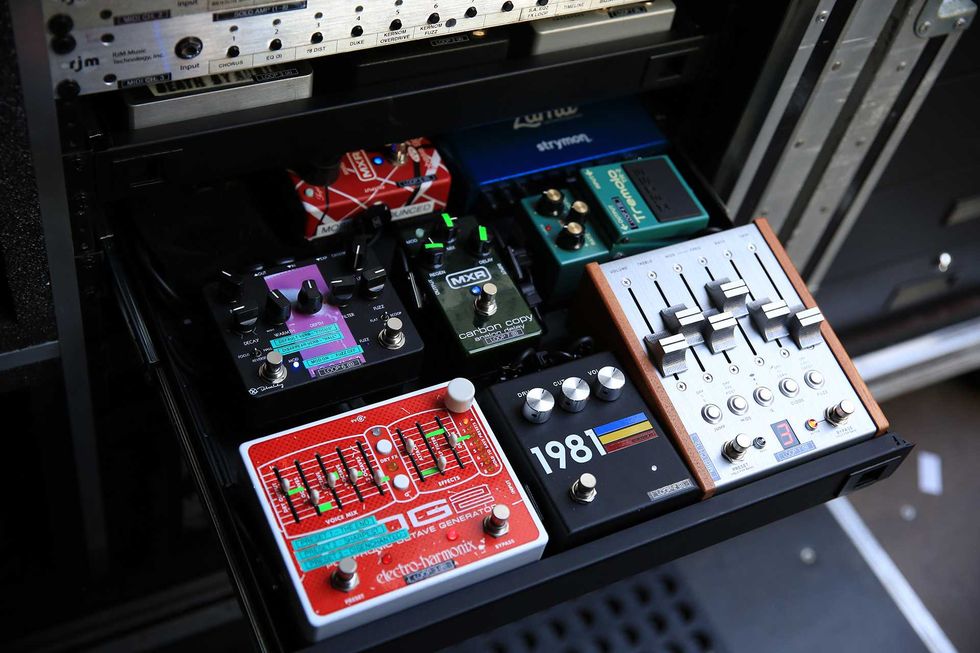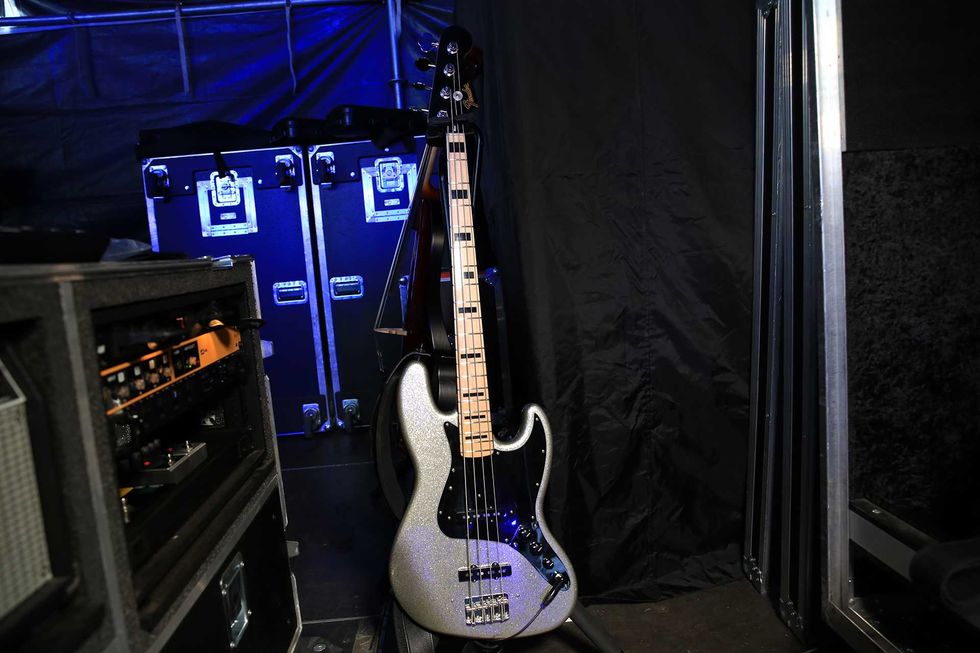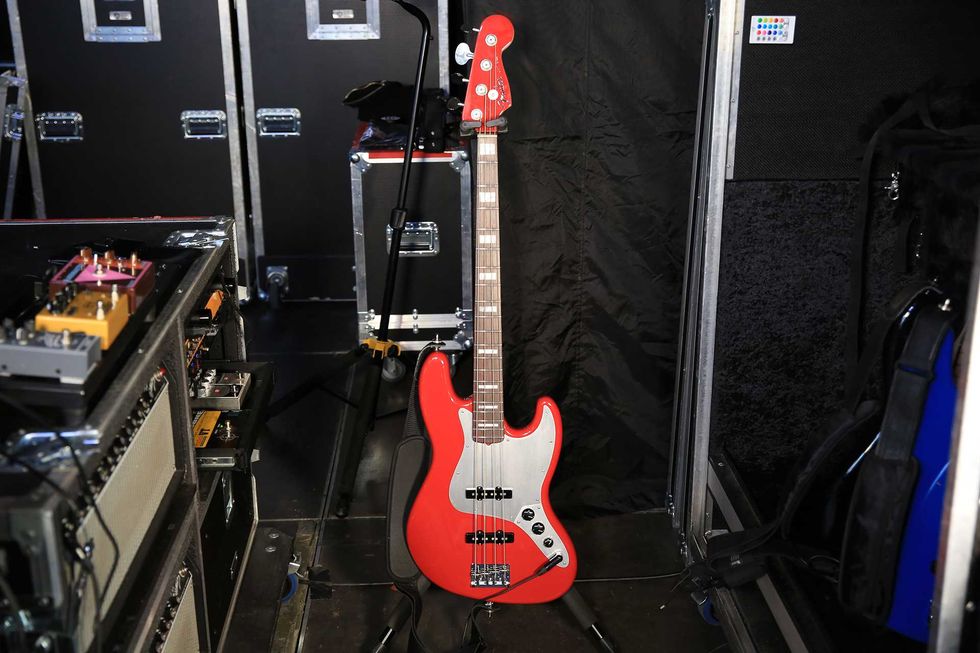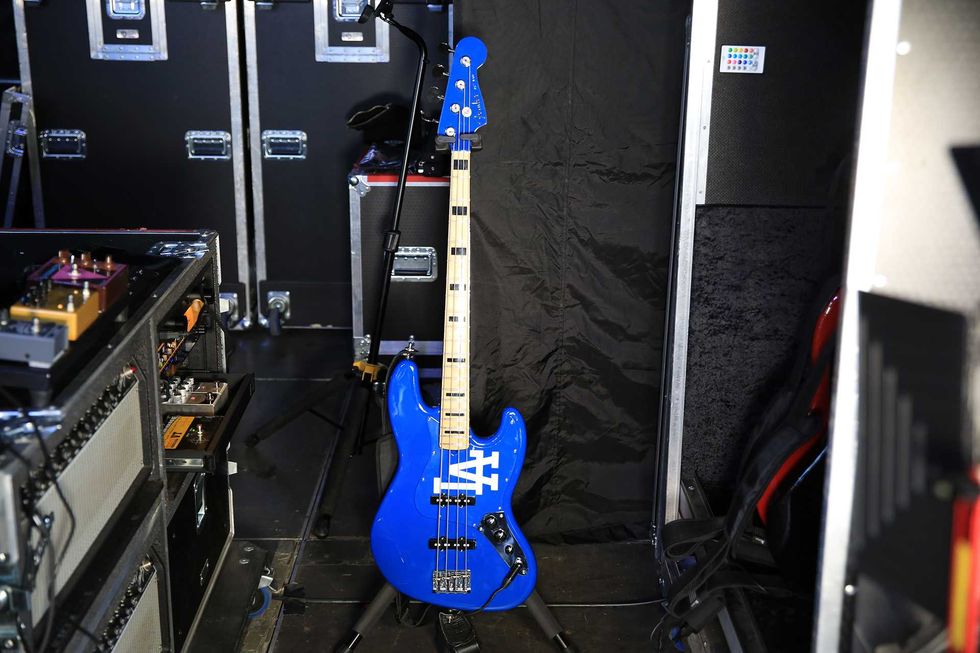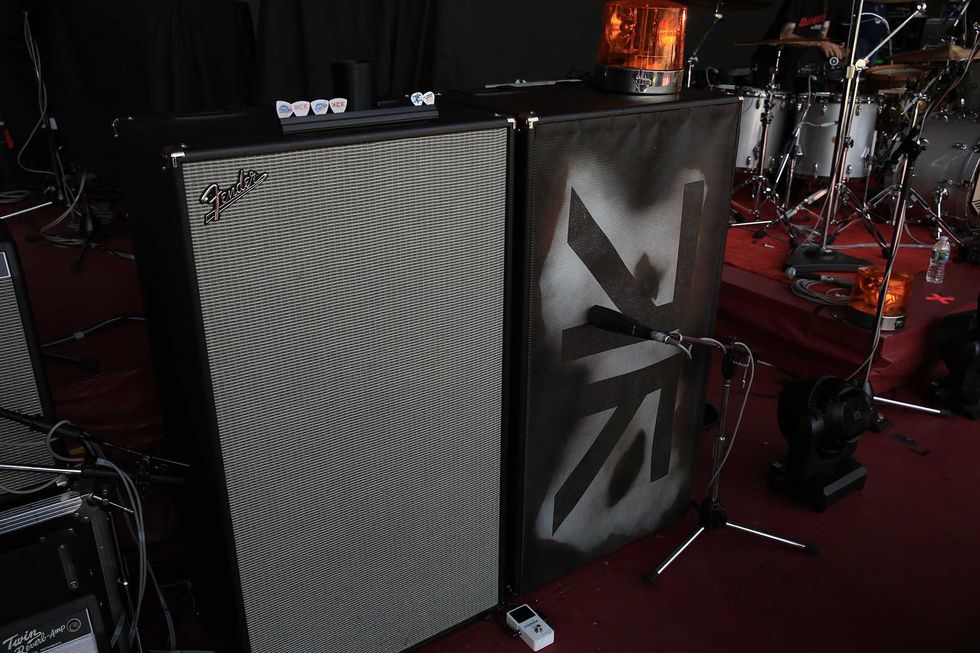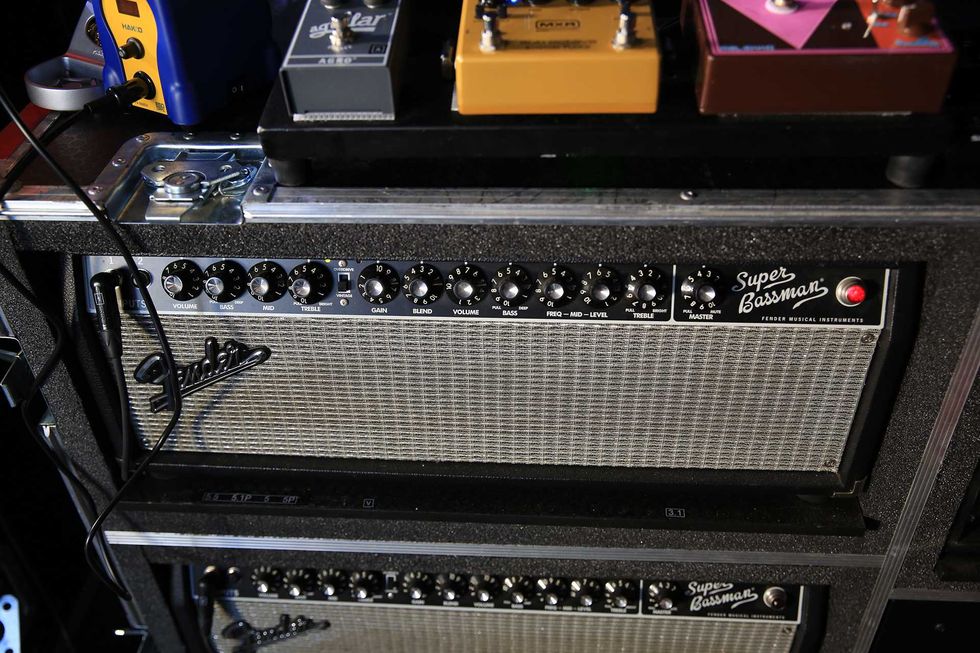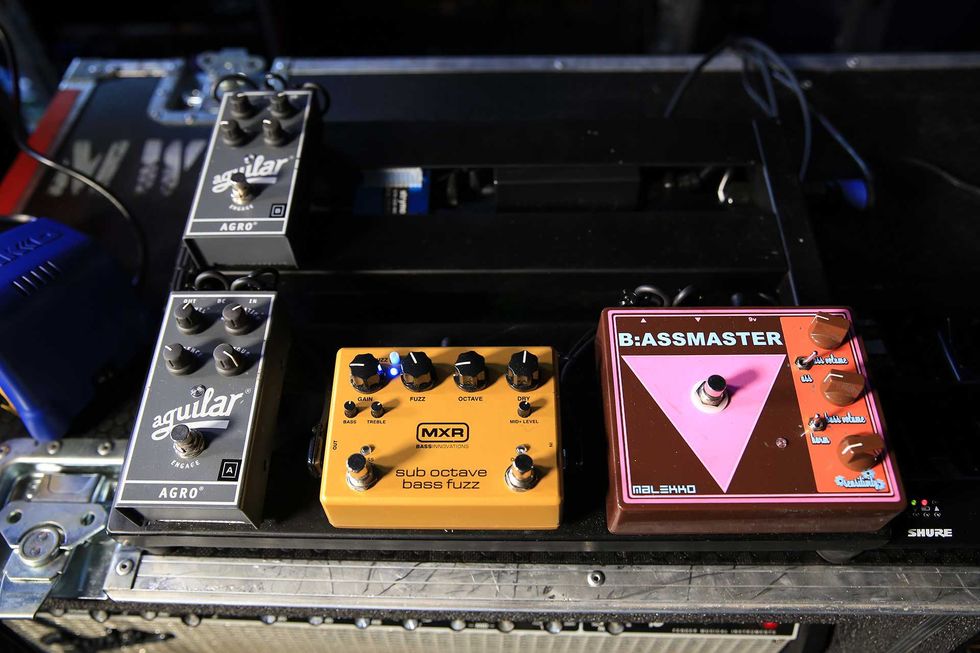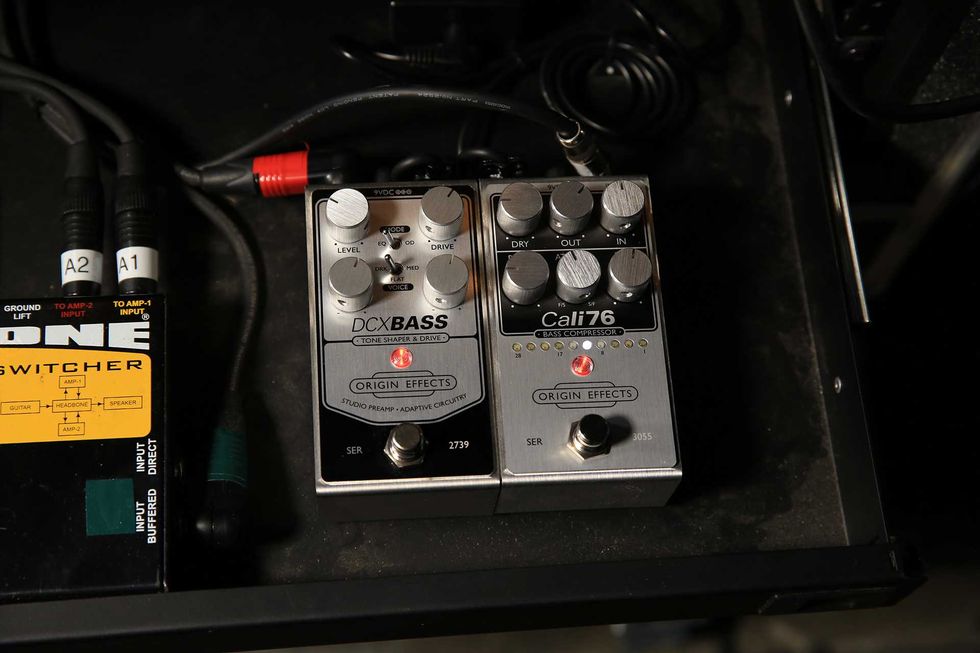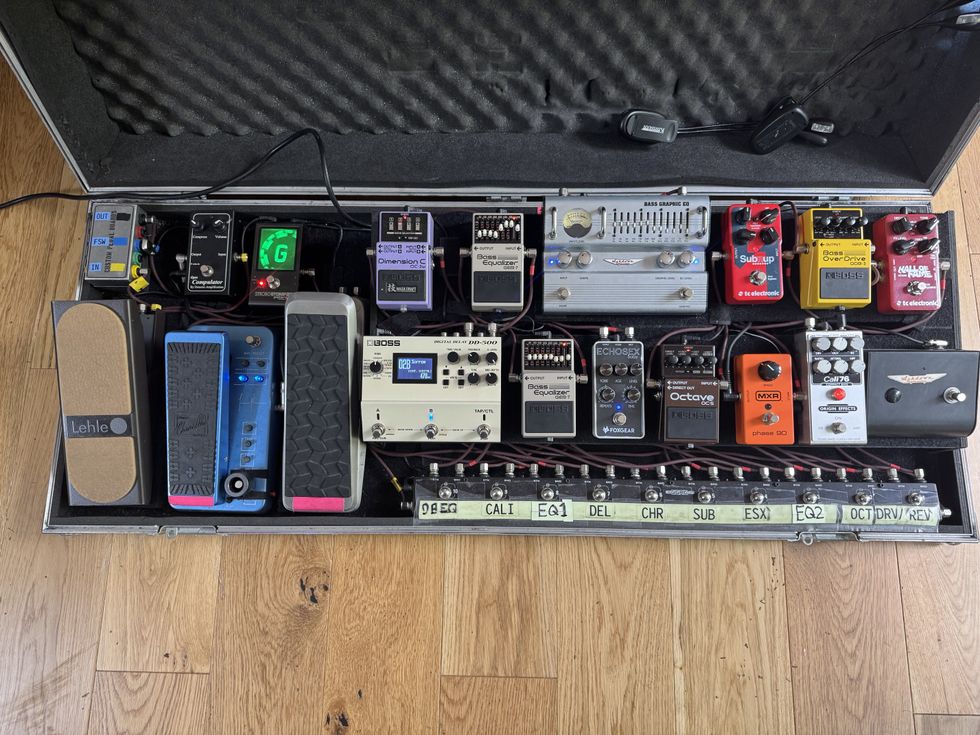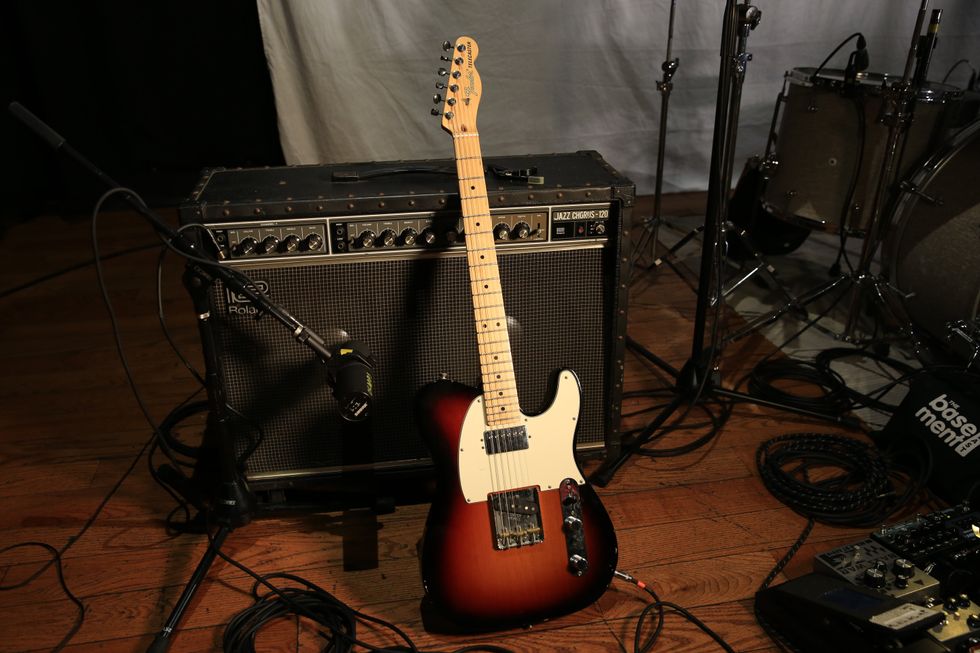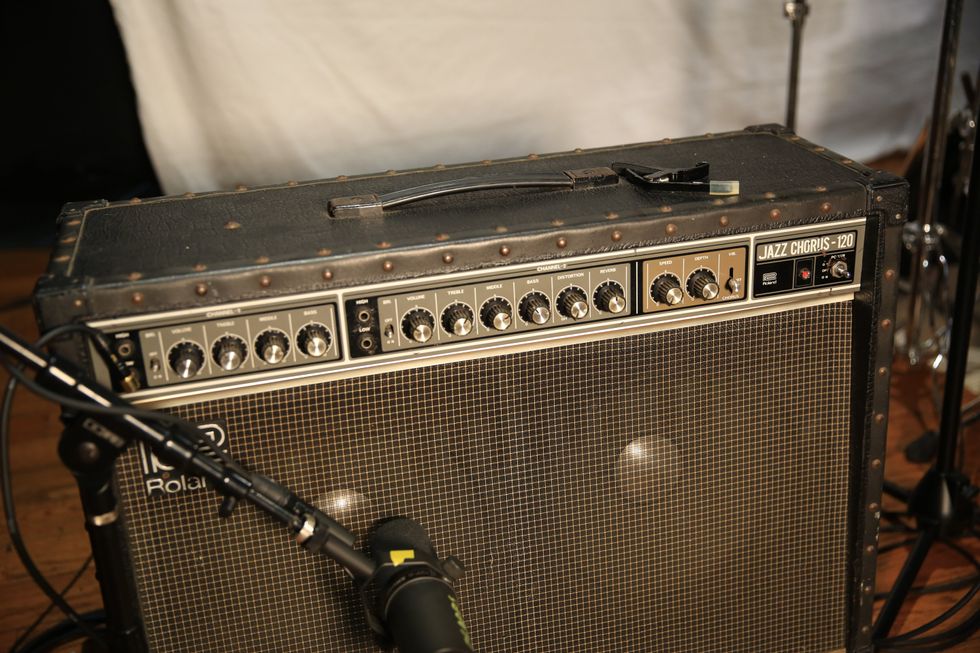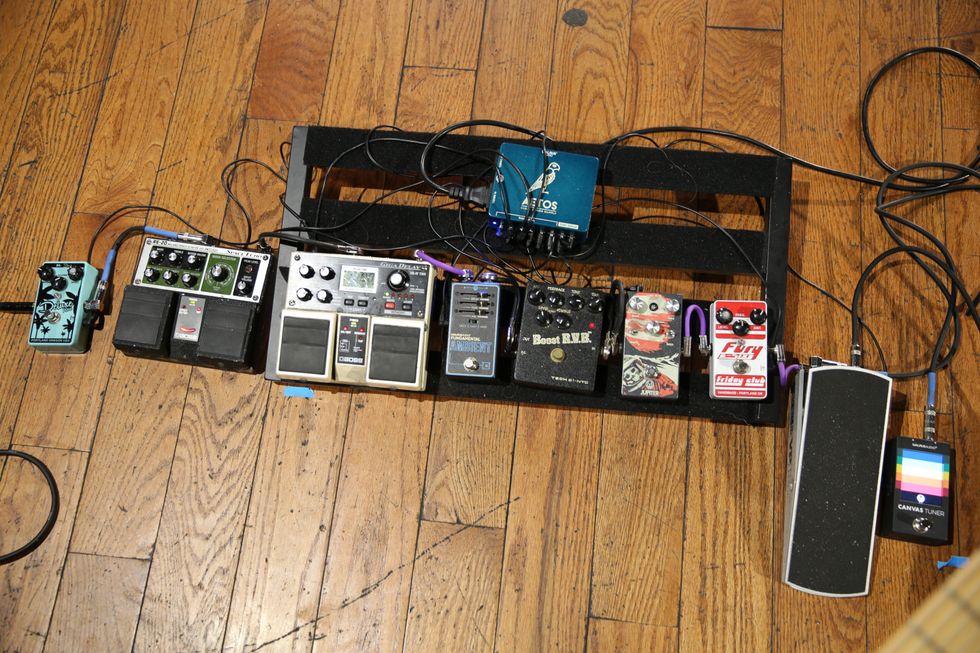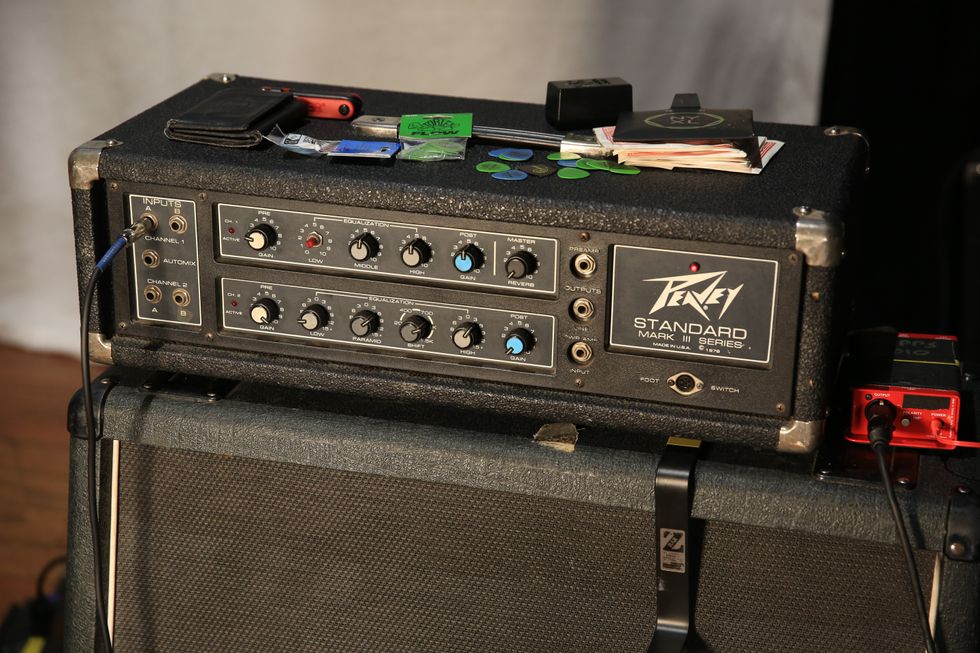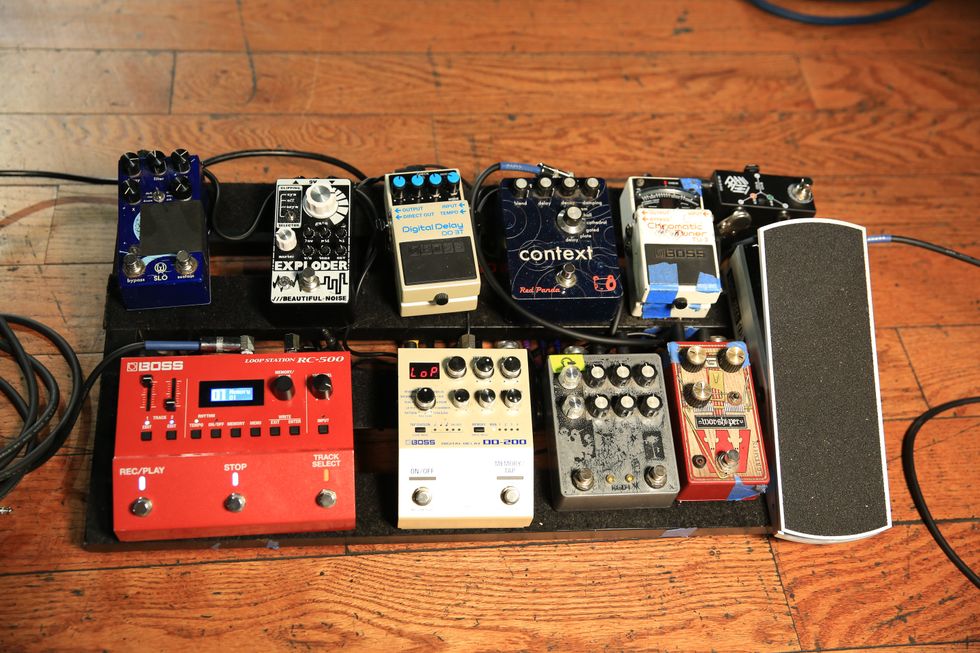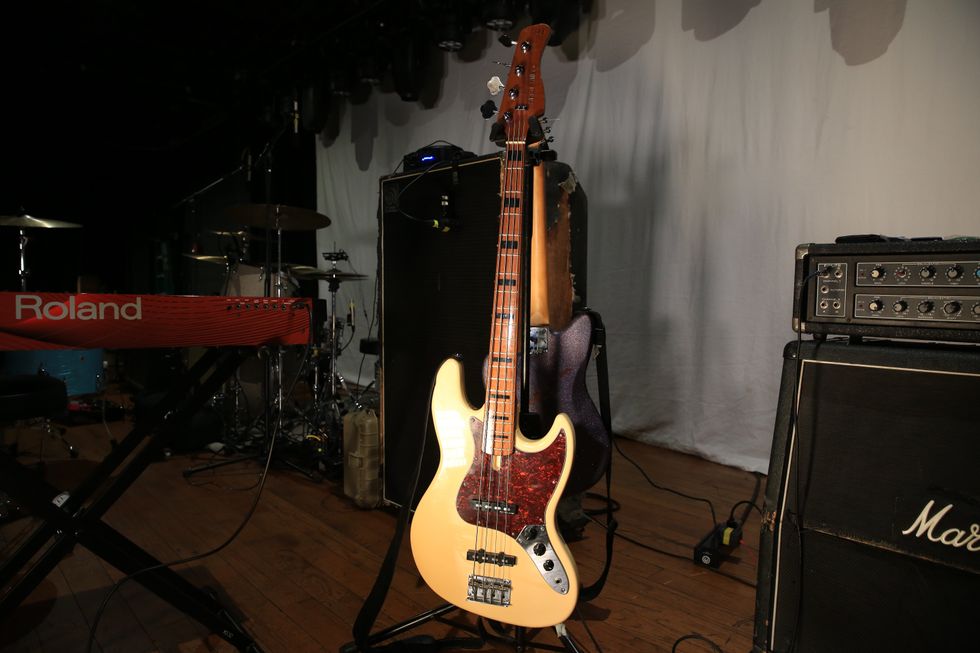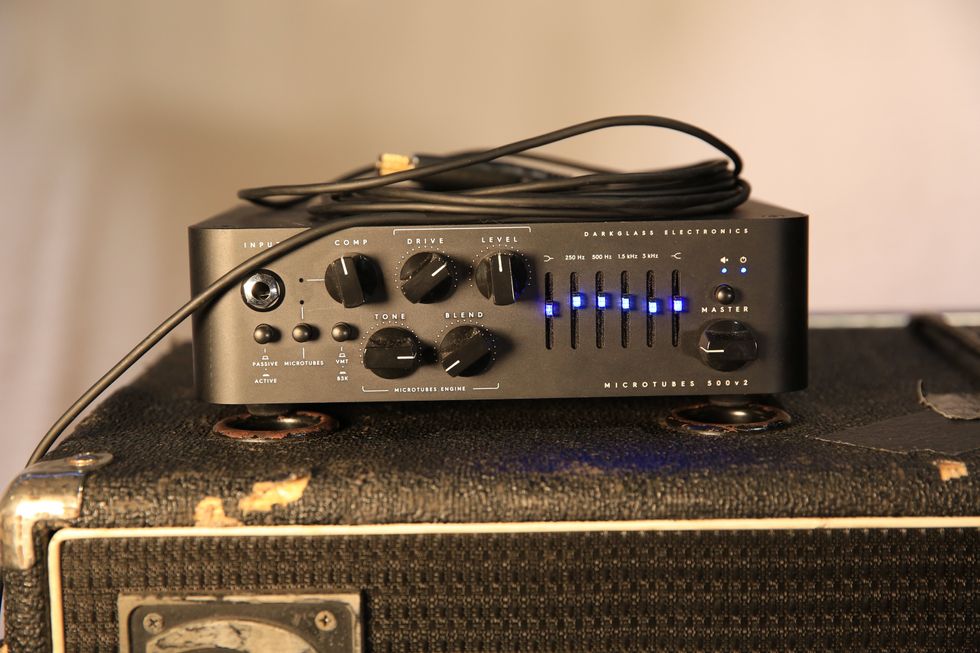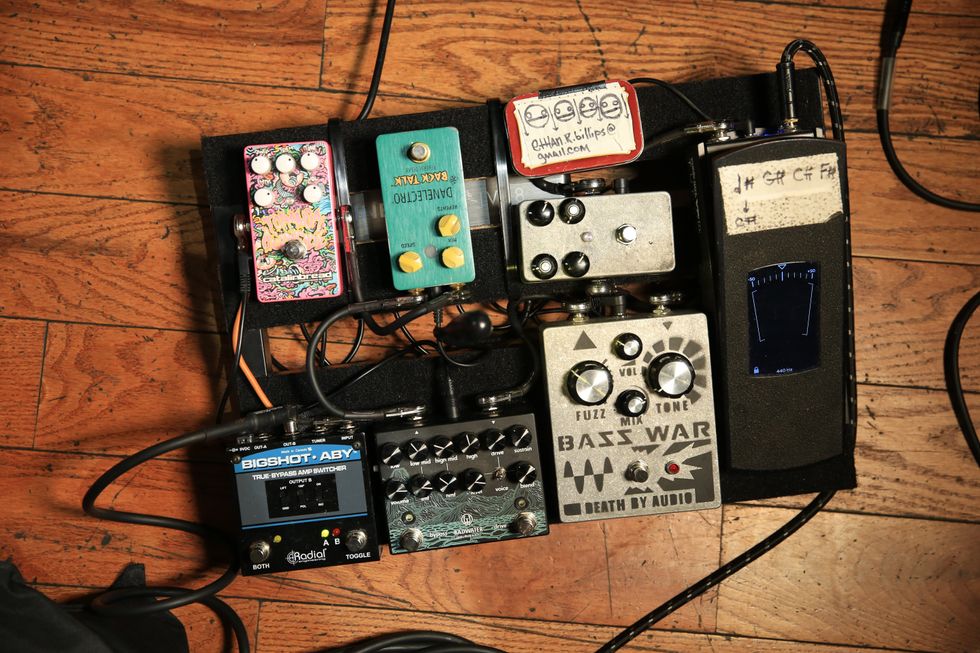Applying the descriptor “Swiss Army knife” to a piece of gear is probably overused in reviews, but if it aptly describes an instrument, amplifier, or effect pedal that offers excellent versatility, it’s a fitting one. Many effect companies offer different takes on a portable preamp—which can provide a multitude of benefits—and one of the latest units on the market comes from the design team at MXR. Their M81 Bass Preamp boasts both simplicity and flexibility, all wrapped up in a simple green box.
Just the Essentials, Please
The primary feature of the MXR M81 is its 3-band EQ with sweepable midrange. The bass and treble controls are voiced quite nicely, providing fullness that doesn’t muddy the tone and highs that aren’t harsh. Unless you obsess over midrange at Billy Sheehan-like levels, the mid and mid-frequency controls are very user-friendly, and allow a bassist to boost or mellow out the bumps, honks, and clacks of this sonic spectrum.
Secondary features include the input and output controls. They make boosting a passive signal and achieving unity gain a breeze. Tucked cozily into the 6-knob setup are also two switches—one for ground lift and the other a pre/post for a studio-quality DI. The pedal is powered through either a 9V battery or adaptor, and it uses MXR’s Constant Headroom Technology.
Problem Solved
No matter what bass I plugged into the MXR M81, the pedal improved the overall sound of the instrument. I started by placing the pedal between a ’64 Fender Jazz and an Epifani AL112 combo set flat to hear if the preamp could breathe some life into the J’s aging pickups.
Ratings
Pros:
A super-functional and flexible preamp that brings out the best your bass has to offer.
Cons:
Some players may find the ground lift and pre/post switches a bit difficult to reach.
Tones:
Ease of Use:
Build/Design:
Value:
Street:
$169
MXR M81 Bass Preamp
jimdunlop.com
A significant boost with the input dial and a slight bump with the bass control began an instant tone resurrection. Tweaking the mids brought some aggressiveness to the bridge pickup thanks to a +3 dB boost in the 500 Hz range. A little cut in the treble darkened the tone and helped create punchy and burpy bass lines, perfect for 16th-note passages.
Most surprising was how the M81 enhanced the neck pickup. It’s not that often that Jazz-bass-style players solo this side of the instrument, but with a little boost of the bass, mid (at 480 Hz), and treble, the ’64 took on a tonal character similar to its older brother P.
Despite already having its own preamp onboard, a Brubaker Brute MJX-5 benefitted from what the M81 preamp could provide. A twist of treble made the instrument’s 3-month-old strings sound fairly fresh. When I soloed the Brubaker’s Music Man-style bridge pickup and boosted the bass and mid, the M81 helped deliver a StingRay-esque voice that would be ideal for Chic bass lines and Louis Johnson disciples.
Bassists who double will probably also be impressed with the M81. I was able to dial out the harsh mids that plague both a Ned Steinberger NXT electric upright and a German upright equipped with a Fishman Full Circle pickup. It was easy to glean sounds perfect for salsa bands or jazz ensembles, from deep dub-like timbres to tones that brought out the wood of the bass.
The VerdictWhether you’re looking to give your vintage bass a modern vibe without having to route the body, or you seek a solo-boost or tonal-tweaking device to cut through the mix, or you need a solid DI that will work well for both the stage and studio, you’re pretty much covered with the MXR M81. All of these options are at your fingertips at a price point lower than many quality onboard bass preamps, and this makes the M81 one of the better boxes in its class. I’d definitely call it a Swiss … well, you know what I mean.





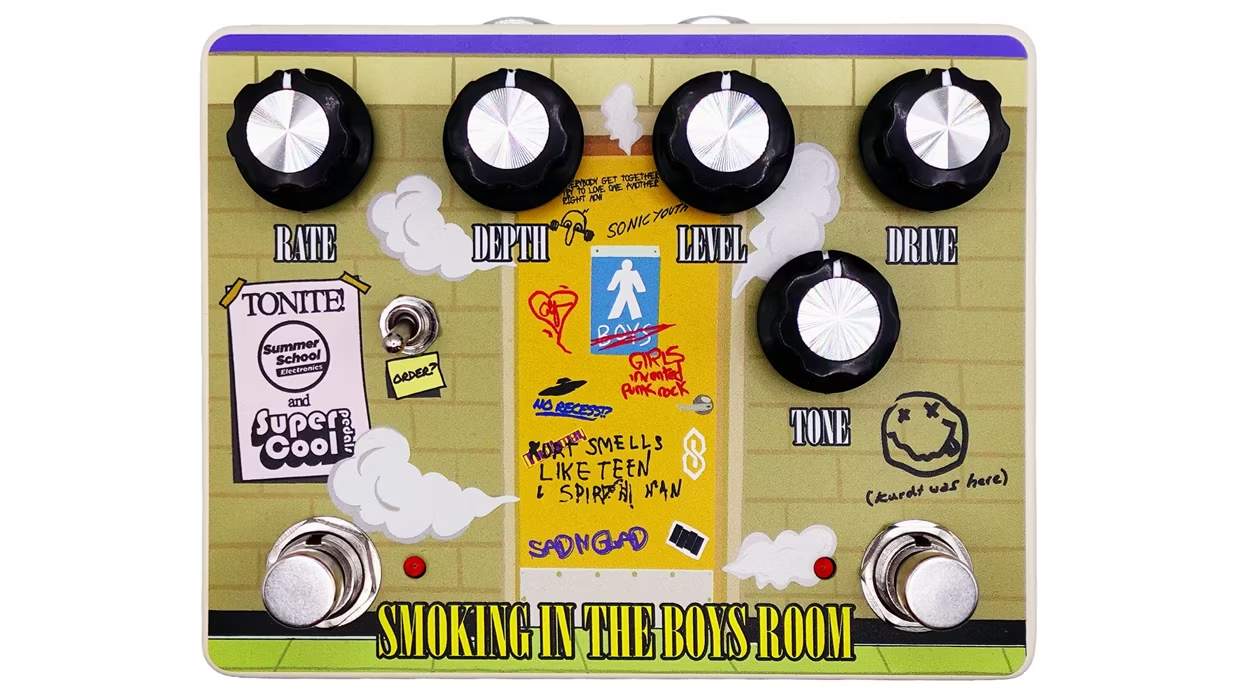

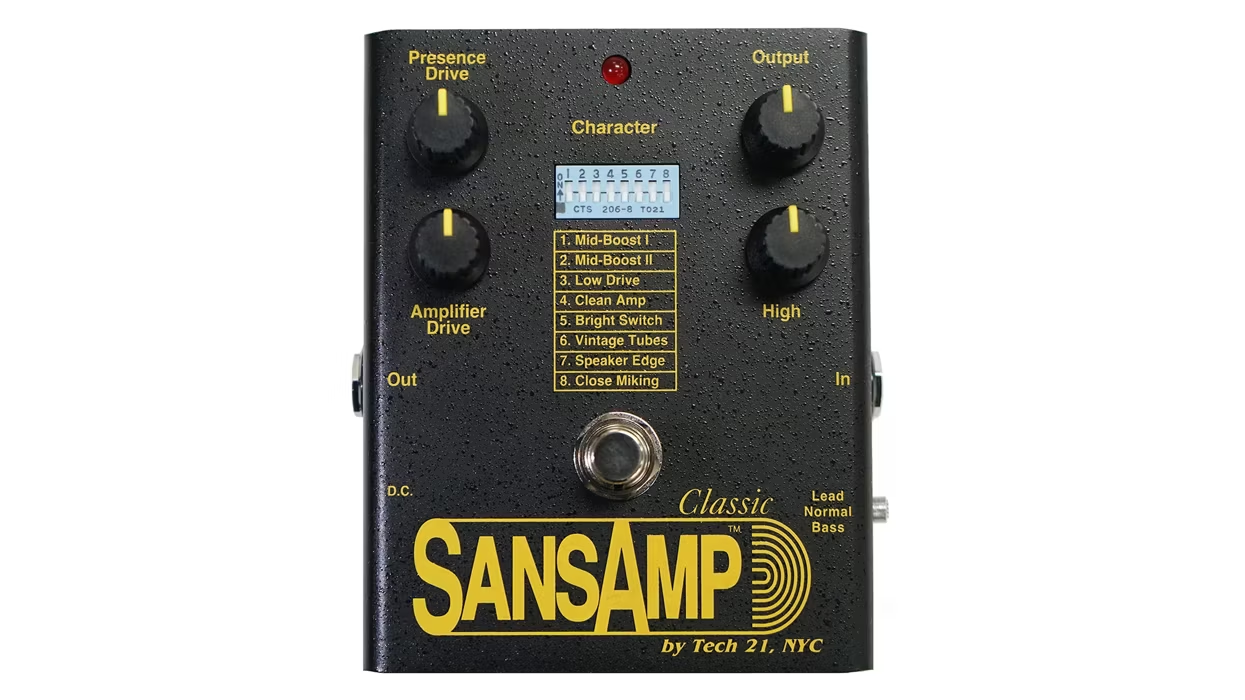

![Rig Rundown: AFI [2025]](https://www.premierguitar.com/media-library/youtube.jpg?id=62064741&width=1245&height=700&quality=70&coordinates=0%2C0%2C0%2C0)












 Shop Scott's Rig
Shop Scott's Rig![Rig Rundown: Russian Circles’ Mike Sullivan [2025]](https://www.premierguitar.com/media-library/youtube.jpg?id=62303631&width=1245&height=700&quality=70&coordinates=0%2C0%2C0%2C0)

